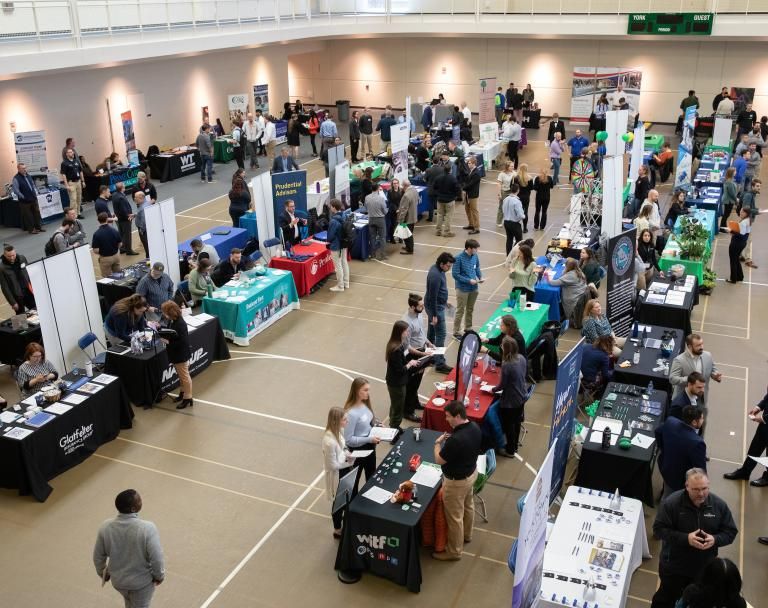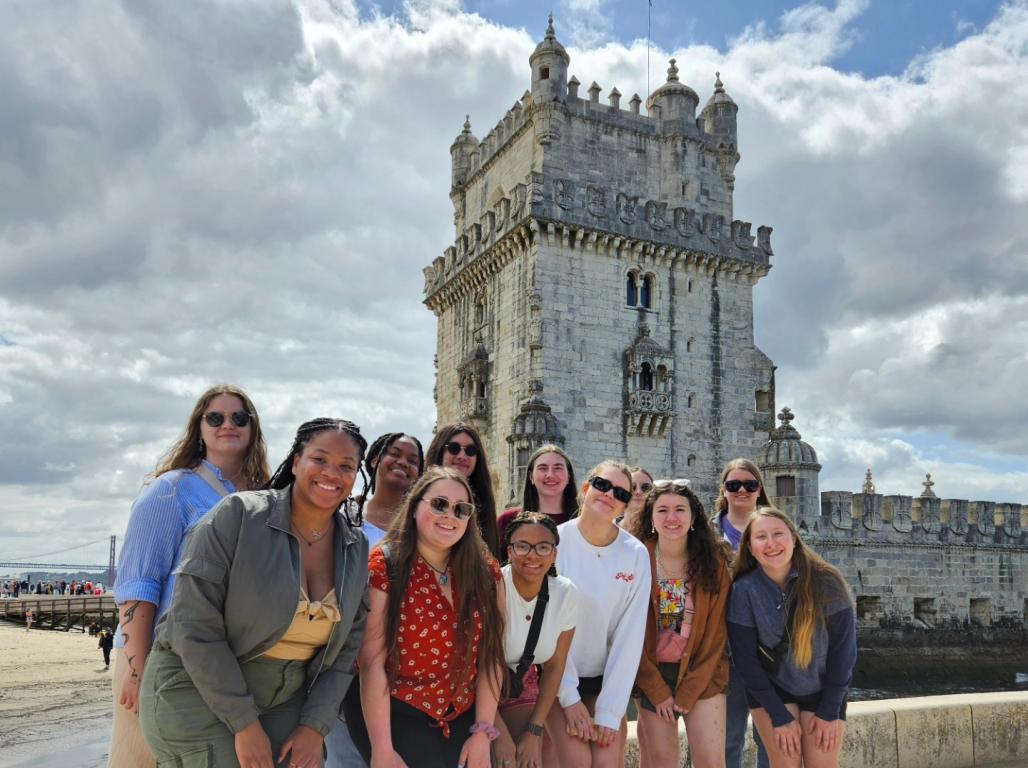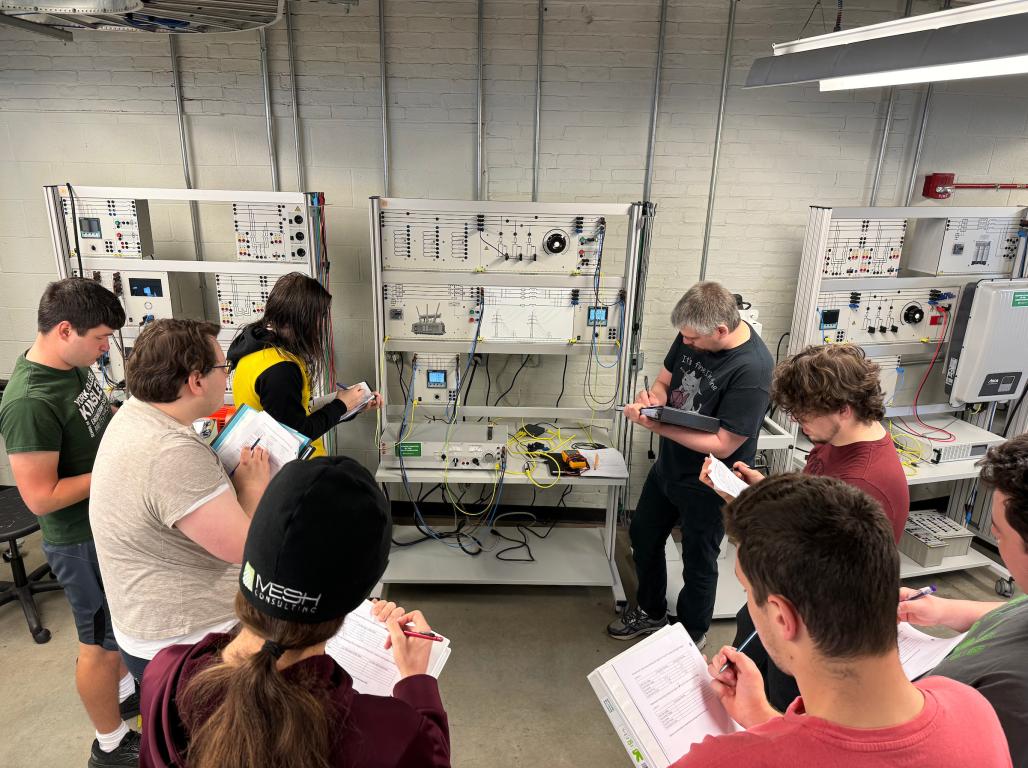College can be a confusing place, but it doesn’t have to be. In Getting to Know Yo(u)rk, we speak to members of the York College community to shed light on various aspects of the college experience.
There are a lot of opportunities to get career experience at York College. Often, students complete internships or co-ops as a part of their coursework. But what is the difference between internships and co-ops, and how do students take advantage of these opportunities? Kelly Arcieri in the Career Development Center had all the answers for helping students choose the right experience.
Kelly Arcieri, Associate Director for Career Development
What are the differences between internships and co-ops at York College?
Internships are an educational experience that offers students the chance to earn academic credit for experiential learning. To qualify for a for-credit internship, students must have completed 60 credits and have a 2.5 GPA. Students are required to complete 120 hours at their internship, have a faculty advisor working with them, as well as a site supervisor and a practitioner, someone who does that role, somebody in that profession who can guide them. There also must be learning objectives and learning outcomes attached to the experience.
Co-ops are strictly for Engineering majors. Unlike an internship, a co-op alternates semesters of academics with semesters of work experience. It’s totally immersive, meaning students generally don’t take classes while completing a co-op. It is 40 hours a week at a job. Students are usually not intermixing their co-op with their classes like an internship.
How do students know which one is best for them?
That’s based on their educational track, their interests, and what they’re expecting to get out of it. In addition to being an educational opportunity for students, internships and co-ops are essentially a three-month job interview for employers. Companies are looking to see if students are a good fit, to see if they could work with them. The link between internships and full-time offers – the conversion rate – was 52% in 2022. Companies often use internships and co-ops as talent pipelines.
How do students go about getting these positions?
Students should visit the Career Development Center early and often. We have lots of connections with employers. Spartan Career Path is our internal jobs database for students [soon to change to Handshake]. They can come and have one-on-one appointments with us to talk about career searches and job searches, internship searches. They can also ask their faculty and inquire through their own personal network. Networking leads to 80% of jobs. We can show students how to connect.
Why should students participate in these opportunities?
It gives them a clue about what they’re going to be doing full-time in their career. They are basically spending a little bit of time checking to see if this could be a career for them and if it is something that they really enjoy. The experience can help them decide if they can see themselves working in that industry.
Clara Weber ’23 Mass Communication
What is your internship title and what are some of your internship tasks?
This semester I am the photography/videography intern reporting to Emily Rund, YCP’s photographer and videographer. My tasks have evolved over the semester. At the beginning, I was learning about the equipment used by Emily, shadowing her when she had photo and video shoots. This included helping to set up and tear down equipment, and monitoring audio and video during video recordings. However, as I became more comfortable in the position and with the equipment, I began to work on some things on my own. This has included editing pre-existing material into new creations for our social media accounts. I also recently took on my own video project highlighting the Women in Science and Engineering Club. I also have been helping to photograph campus events and have scheduled a few headshot sessions on my own.
How does this relate and differ from what you've experienced in your classes?
My classes have come in handy for preparing me for internships. Specifically with this internship, I've been able to utilize my pre-existing knowledge of lighting, editing, and communication skills. However, the biggest difference between my classes and this internship is the experience I'm getting with photography. In Mass Communication, our areas of heavy focus are audio and video production, with photography kind of on the back burner.
How is this preparing you for your career?
This internship is in-person, which helped me get used to a professional work environment with other people to collaborate with and report to. I am also learning about the proper ways to communicate with those I work with and how to manage projects and deadlines. In addition, the Adobe software that I've been learning in the classroom and am now continuing to use for my internship is exactly what employers will want me to be using. All the practice that I'm getting as a photography and videography intern will be able to be applied in my future career.
Why should students consider an internship?
Mass Communication majors are not required to have an internship, but I highly suggest it to anyone feeling like they want to be more confident in their abilities. The experience that I've gained in this internship and my previous one makes me excited for graduation, because I am more confident in my skills and know that I have professional knowledge that I can build on. Emily is a wonderfully fun person, always willing to answer questions and make me feel like I can do anything. Her support in these skills has made this a fantastic experience!




